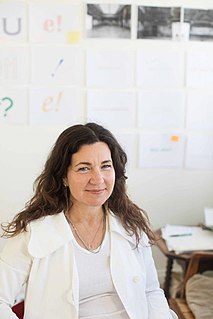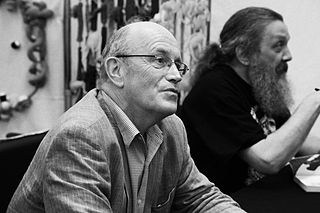A Quote by Alan Watts
The anitya doctrine is, again, not quite the simple assertion that the world is impermanent, but rather that the more one grasps at the world, the more it changes.
Related Quotes
In the doctrine of the world and humankind as 'will to power and nothing else', Heidegger identified not an antidote to nihilism, but the completion of it. For what can be more destructive of truth and value than the doctrine that these are simply the impositions on the world of human exercises of power?
The little world of childhood with its familiar surroundings is a model of the greater world. The more intensively the family has stamped its character upon the child, the more it will tend to feel and see its earlier miniature world again in the bigger world of adult life. Naturally this is not a conscious, intellectual process.
We stink more of the world than we stink of sack cloth and ashes. A lot of contemporary churches today would feel more at home in a movie house rather than in a house of prayer, more afraid of holy living than of sinning, know more about money than magnifying Christ in our bodies. It is so compromised that holiness and living a sin-free life is heresy to the modern church. The modern church is, quite simply, just the world with a Christian T-shirt on!
Phonogram was explicitly about our world. It’s a fantasy which is happening around us all, unnoticed except for those who’ve fallen into its world. In a real way, it’s real. Conversely, W+D is much more overt. The appearance of the gods changes the world, and has changed the world going back. There’s the strong implication that certain figures in our world simply didn’t exist in The Wicked And The Divine‘s world, because they were replaced by a god.










































